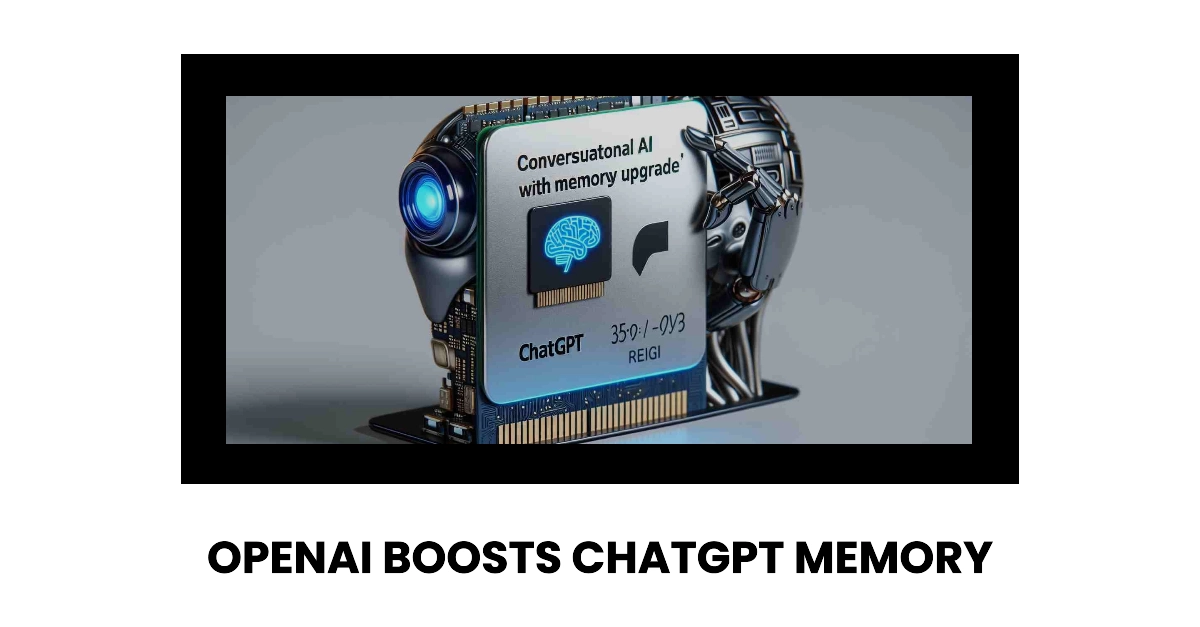ChatGPT, the conversational AI that took the world by storm, is about to get even smarter. OpenAI, the developers behind ChatGPT, have announced significant upgrades to the model’s memory capabilities. This means ChatGPT will soon be able to remember past conversations, synthesize information across interactions, and provide more cohesive, relevant responses.
Let’s explore the implications of this major update.
What Does “Memory” Mean for ChatGPT?
Currently, ChatGPT primarily operates on a single-interaction basis. Each conversation is like a fresh start, without context from previous chats. Here’s what the memory boost will enable:
- Long-Term Context: ChatGPT will retain information from previous conversations with you. Imagine asking for restaurant recommendations over multiple days. After giving initial preferences, it can tailor subsequent suggestions based on past feedback.
- Informational Tracking: When researching a topic, you could pose a series of questions. ChatGPT might summarize answers, remember key points, or even refine findings based on new queries.
- Adaptive User Profiles: With your permission, ChatGPT might construct a lightweight profile about your interests and needs. This would personalize information and interactions, even over extended periods.
How to Benefit from ChatGPT’s Improved Memory
The specifics of how to fully leverage ChatGPT’s new memory features will depend on its implementation. However, here are likely examples:
- Complex Problem-Solving: You could brainstorm an issue over multiple sessions. ChatGPT might reference previous solutions, bring up forgotten options, or identify trends in discussion points.
- In-Depth Learning: If you’re studying a complex subject, ChatGPT can remember past explanations, adjust terminology based on your understanding, and provide practice quizzes tailored to the material covered.
- Deeper Creative Collaboration: For storytelling or world-building projects, ChatGPT could recall characters, plotlines, or stylistic choices across writing sessions.
Potential Challenges and Considerations
OpenAI’s memory enhancements promise immense possibilities, but potential concerns will also need to be addressed:
- Privacy: It’s vital to understand how your personal data will be stored and used to power these memories. Strong privacy controls and transparency will be key for user trust.
- Bias and Misinformation: ChatGPT’s enhanced memory means it could solidify mistaken beliefs or biases if it receives misleading information over time. Ensuring a high-quality knowledge base and safeguards against factual errors are essential.
- Computational Needs: Processing and storing conversation history significantly increases resource demands. Accessibility and environmental impacts of increased processing power will need consideration.
The Future of Conversational AI
OpenAI’s focus on memory represents a significant leap forward for conversational AI. We can anticipate virtual assistants capable of deeper personalization, more nuanced research capabilities, and collaborative creation processes akin to a thought partner.
As memory functions advance, it’s likely that ChatGPT and similar AI models will transform how we interact with information and engage creatively with the world around us.
